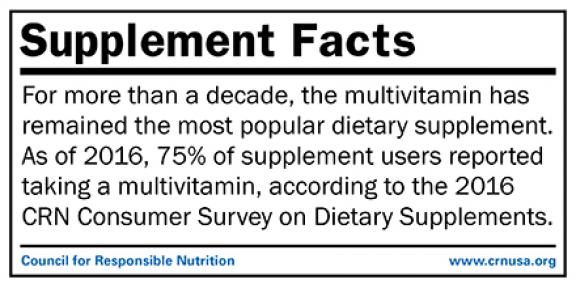The Short Report | Printable PDF
A topline report from the Council for Responsible Nutrition (CRN),
the leading trade association for the dietary supplement and functional food industry
Pharma firm seeks Rx monopoly for omega-3s; CRN opposes
CRN has urged the U.S. International Trade Commission (ITC) to reject a complaint filed by Amarin Pharma that seeks to declare concentrated EPA omega-3 fish oil a “drug” and prohibit its importation as a dietary supplement. In its submission opposing the complaint, CRN called the action “financially motivated” and argued that the request to ban imports of concentrated EPA fish oil as supplements would “dramatically affect consumers’ access by making it more difficult and expensive, if not impossible, to obtain the health benefits associated with these [EPA omega-3 fish oil supplements].”  Further, CRN pointed out that Amarin “crossed a legal boundary” by seeking to bypass the FDA’s rightful authority to interpret federal food and drug laws to determine what is a drug and what is a dietary ingredient.
Further, CRN pointed out that Amarin “crossed a legal boundary” by seeking to bypass the FDA’s rightful authority to interpret federal food and drug laws to determine what is a drug and what is a dietary ingredient.
Amarin’s complaint was filed early last month against 18 manufacturers and marketers of esterified fish oil ingredients and finished products.
Supplement OWL honored with ASAE ‘Power of A’ award
The Supplement OWL is one of 32 Power of A Silver award winners, out of a total 149 submissions—an impressive feat for the dietary supplement product registry that went live barely six months ago. The Power of A awards, presented by the American Society of Association Executives (ASAE), showcase association initiatives that leverage their unique resources to solve problems, advance industry and professional performance, kick-start innovation, and improve world conditions. “As the Supplement OWL gains momentum within the industry and among stakeholders, I hope this award further motivates companies to participate in the registry,” said CRN’s Steve Mister.
“As the Supplement OWL gains momentum within the industry and among stakeholders, I hope this award further motivates companies to participate in the registry,” said CRN’s Steve Mister.
The Supplement OWL provides retailers with an authoritative database to examine and evaluate labels of products on the market and help them make more informed decisions when determining which products they have confidence placing on their store shelves. Over 7,500 supplement labels have already been submitted for inclusion in the Supplement OWL, representing 71 brands. Explore the product registry here.
CRN opinion piece reflects the need for passage of SNAP legislation
“Nearly nine in 10 Americans don’t get enough vitamins and minerals [from food alone],” said CRN’s Steve Mister in a guest editorial published in USA Today (online) and the Detroit News, encouraging American consumers to incorporate dietary supplements into their health and wellness regimens in order to fill nutrient gaps. The piece is part of CRN’s proactive education initiative to raise awareness about the multivitamin as a necessary complement to conventional food. A shorter version of the piece is being syndicated to community newspapers across the country. 
CRN plans other guest columns on this topic, urging access for all to the multivitamin. This effort dovetails with legislation recently introduced in Congress, the SNAP Vitamin and Mineral Improvement Act (HR 3841), which allows for the inclusion of a multivitamin under Supplemental Nutrition Assistance Program (SNAP) benefits. In a statement released by CRN regarding HR 3841’s introduction, Mike Greene noted that “allowing SNAP recipients to purchase a multivitamin with program benefits empowers them with an additional choice for themselves and their families, and makes achieving proper nutrition a right, not a luxury."
CRN says new analysis of poison control center data lacks context and understanding of industry regulation
CRN aggressively rebutted a study in the Journal of Medical Toxicology that inappropriately used poison control center statistics as a basis for questioning supplement safety and regulation. In addition to publicly responding to the study, CRN sent letters to 17 editors and reporters and posted comments to other online outlets to correct the record and raise awareness of the study’s limitations and lack of context. CRN comments were included on CNN.com, and the San Francisco Chronicle published the trade association’s Letter to the Editor.
The study analyzed “exposures” as reported by poison control centers and misinterpreted them as actual adverse events associated with a dietary supplement that might be a reason for concern. Other study limitations are the inclusion of homeopathics in the study, despite the fact that they’re not regulated like dietary supplements, and the authors’ failure to account for the substantial increase in both number of products on the market and increased consumer usage when noting an overall rise in the rate of dietary supplement exposures from 2000 through 2012. A special session at CRN’s upcoming annual conference, Oct. 18–21 in Tucson, Arizona, will further explore the shortcomings of the study.
REGISTER NOW
Know your #SupplementFacts




